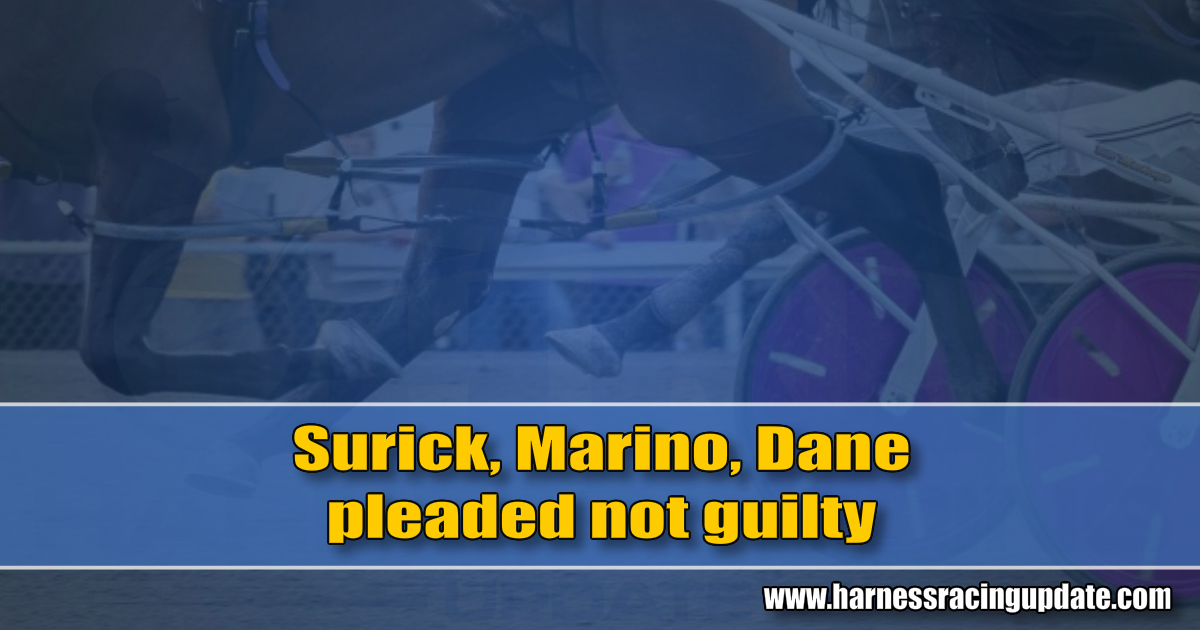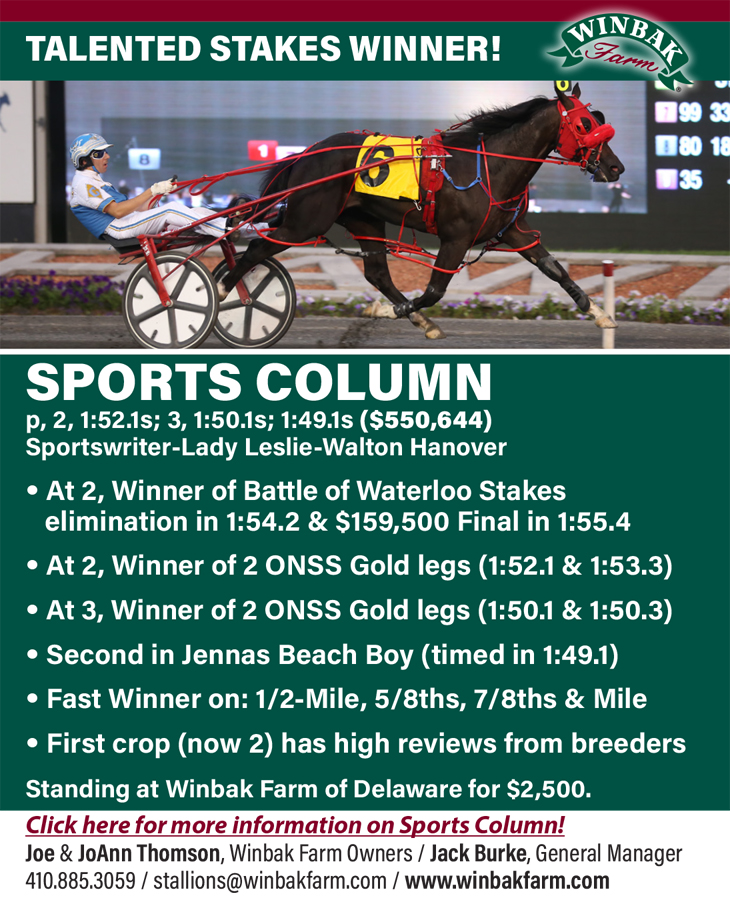Surick, Marino, Dane pleaded not guilty
The standardbred trainers — among others charged in an alleged horse-doping scheme involving performance-enhancing drugs — were arraigned Thursday
by Bill Finley
Harness trainers Nick Surick, Chris Marino and Rick Dane Jr., among 29 individuals caught up in a horse-doping scheme that involves performance-enhancing drugs and has shaken standardbred and thoroughbred racing, entered not guilty pleas when arraigned Thursday (April 2).
Due to the coronavirus, the hearing took place via teleconference. None of the harness trainers took part in the teleconference, and their pleas were entered by their attorneys.
The defendants entered their pleas before United States District Judge Mary Kay Vyskocil. Thursday’s hearing covered one of four indictments issued by the Department of Justice involving the case. The doping probe also includes assistant trainer Conor Flynn, who is being charged in a separate indictment. Trainers Rene Allard and Richard Banca are also involved and both were arrested. It was not clear Saturday whether or not they have been indicted.
Surick has been charged with two counts of misbranding or adulterating drugs and two counts of obstruction. The misbranding charge carries a maximum sentence of five years’ imprisonment and the maximum penalty for obstruction is 20 years. Trainers Chris Oakes and Dane were charged with one count each of misbranding.
The biggest names involved in the scandal are thoroughbred trainers Jason Servis and Jorge Navarro. The list also includes a number of veterinarians and drug suppliers. But the sport of harness racing has also been hit hard. Allard, Banca and Surick are among the top seven in the U.S. in earnings for 2020 and Allard and Banca were one-two in the trainer standings at Yonkers at the time of their arrests.
Vyskocil heard the pleas of those who fell under the indictment in the case of United States of America v. Navarro. All 19 defendants included in that indictment plead not guilty as lawyer after lawyer informed the judge of their client’s decision. That came as no surprise as it is very unusual for someone to enter a guilty plea at the arraignment stage.
Assistant U.S. Attorney Andrew Adams, who heads up the prosecution team, revealed that more people could be charged before the government wraps up its case. When asked by Vyskocil if he expected that there will be additional charges or additional defendants, Adams replied: “We are certainly considering that.”
“The investigation, I will note, continues,” Adams said later. “As what I will describe as part of discovery, there are still documents and records coming into the government from various parties, people who have received search warrants or subpoenas. Of course, there are quite a few electronic devices in FBI control to which warrants have been obtained and now the execution of warrants is underway.”
The case will now move to the discovery phase, in which the government must make all its evidence available to the defendants and their clients. Adams said the evidence was “voluminous” and would require a lengthy time frame for the discovery portion to conclude. Adams said the evidence would be released in three stages and suggested attorneys would need six months to work their way through the evidence.
“Realistically, it will take six months to complete,” Adams said of the discovery stage. “In light of the volume and the manpower constraints that we have because of the coronavirus, I think that’s a realistic estimate.”
Adams stated that much of the evidence was acquired through wiretaps placed on the phones of the defendants. He said there is a year’s worth of wiretapped phone conversations and that between three to four phones were intercepted at once.
In noting the need for a long discovery phase,Robert Baum, an attorney for defendant Alexander Chan, said the evidence would include “tens of thousands” of conversations.
Vyskocil set the next conference for June 30. She did not set a trial date, but said she may do so in the fall.
With their not guilty pleas having been entered, the defendants could go in a number of directions. They could choose to fight for their innocence and have a trial, but that would require paying hefty legal fees. Some may choose to enter guilty pleas before the case comes to a trial and attempt to get a lighter sentence. The publication The Hill reports that, in 2018, 90 per cent of those charged in federal criminal cases plead guilty while only just two per cent went to trial. Of the two per cent that go to trial, 83 per cent were found guilty.
















